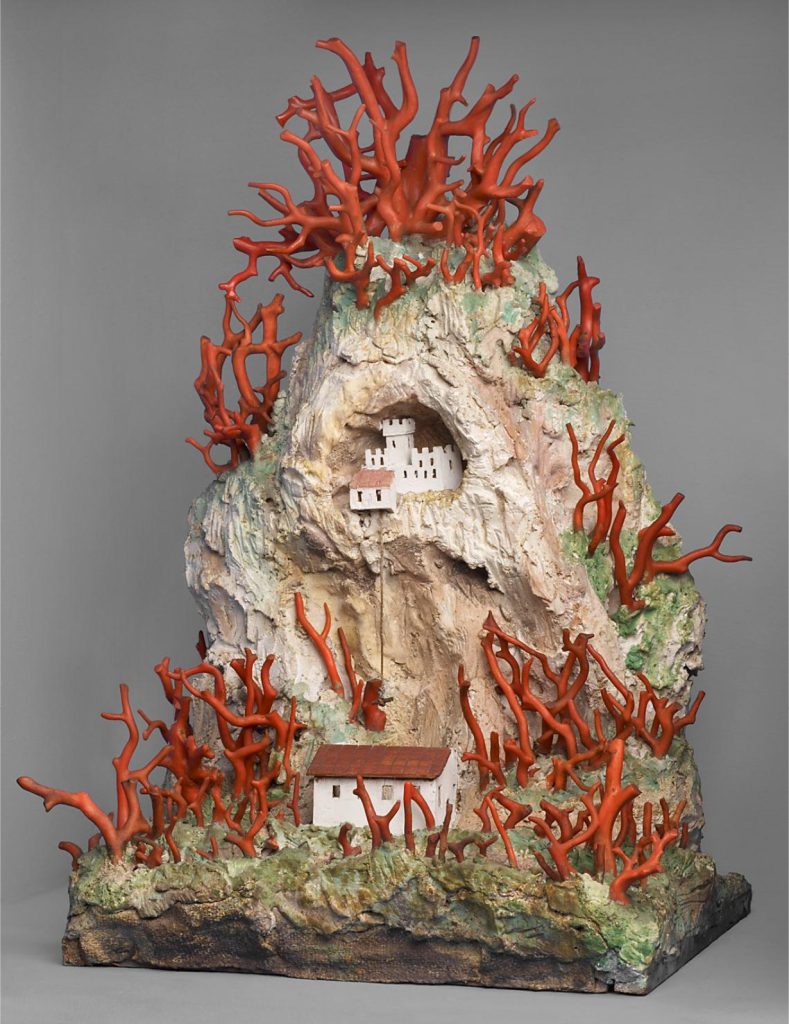Date/Time
Thursday, November 21, 2024
12:00 pm PST – 1:00 pm PST

Presented by Sylvia Tongyan Qiu, Ph.D. Student, University of California, Los Angeles
Hosted by the Early Modern Research Group
Online event via Zoom
To register, please visit: https://ucla.zoom.us/meeting/register/tJwudOytqz8oGNWgHQ9o707obSooHGurrrtq
Transfiguring between the submarine and the “exterranean” worlds, red coral branches on the miniature mountains (known as “Korallenberge”) in the Ambras Kunstkammer connect the depths of the Mediterranean with Alpine mountainscapes. In between the corals and the rocks, models of human-made structures—a castle, a bridge, and a Cross—render the three mountainscapes recognizable: Martinswand near Innsbruck, Finstermünz fortress in Naunders, and Covolo di Bustistone overlooking the Brenta Valley. Drawing from recent scholarship that reconsiders early modern mountainscapes, landscapes, and wetscapes as productive sites of knowledge, power, and material understandings, this project resituates the Korallenberge within the mountainous sites of Habsburg dominions and in the context of Habsburg mobilization of marine and mineral resources from the 15th to the 17th centuries.
Sylvia Tongyan Qiu is a second-year Ph.D. student in Art History at UCLA. Her dissertation examines the relationship between image-making and diplomacy at EurAsian courts between the 17th and 18th centuries, specifically the transmedial construction of European visions of the Qing Empire through illustrated ambassadorial accounts. Her research interests also include the consumption of gemstones and the transformation of natural products at EurAsian courts. She was the recipient of the 2023–24 Kenneth Karmiole Endowed Graduate Research Fellowship from the Center for 17th- and 18th-Century Studies.
Image: Coral Mountain Representing Covolo di Butistone, 16th Century. Coral, plaster on wooden base; height: 54 cm. Ambras Castle, Innsbruck.

